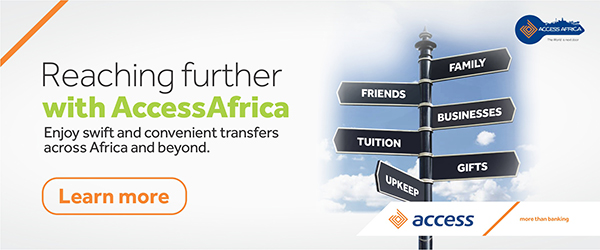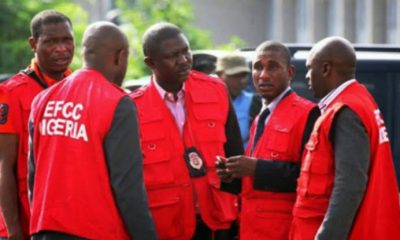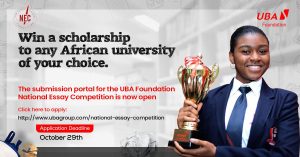News and Report
FIRSTBANK: THE EMBODIMENT OF CORPORATE RESPONSIBILITY AND SUSTAINABILITY
Published
2 years agoon
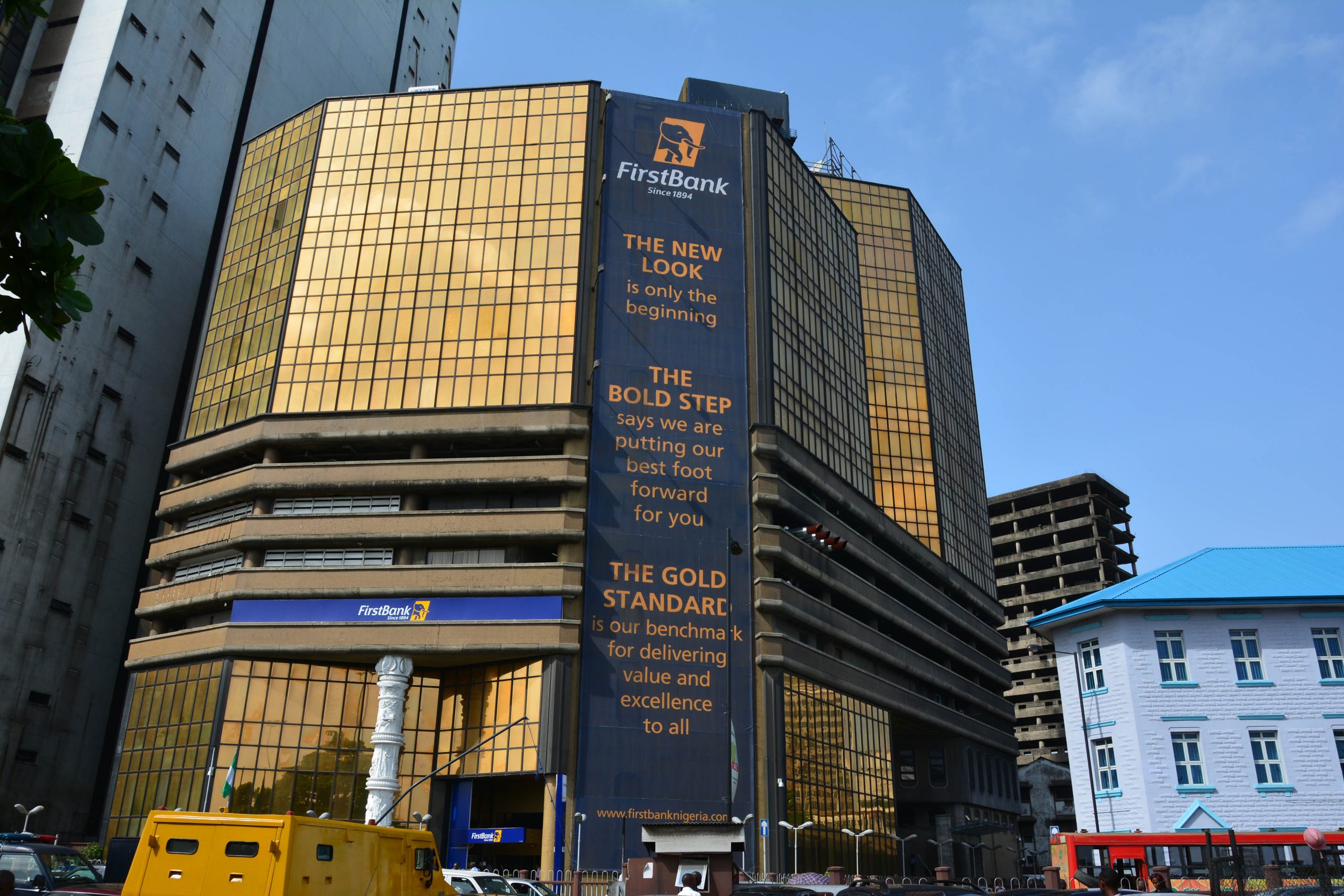
Who should corporate responsibility and sustainability lessons be taken from? Some companies are still unclear about the concept but latching onto the sustainability mantra anyway, because it has become a marketing buzzword for business? Or a company through whose creed and deeds, over the many decades it has been around, people can see corporate responsibility and sustainability lived (first) and preached (subsequently)?
If the above set of questions constituted a question in an examination hall, it would be one of the easiest of questions to answer. Not one person would fail it. Outside the examination hall, the answer to this question that seems as easy and simple like the question of 2 + 2 may not be as easy and simple. It may be complicated by all the cleverly arranged noise and claims projected at people to make it difficult for them to see and accept the obvious.
So, it is incumbent on people who know, and care enough (like this writer), to keep stating and restating the obvious. This is in the hope that doing so would help others to take full cognisance of the obvious and not allow themselves to be bamboozled by image without substance and rhetoric without pedigree.
The concept of corporate responsibility and sustainability is not about the clever or manipulative use of marketing buzzwords by corporate citizens. It is about impact, net positive impact, in the lives of real, not imagined, people through the deliberate and well-planned activities of socially-responsible corporate citizens.
Even if history is no longer taught in most schools in Nigeria, the records are there. The records show that Nigeria has been blessed to have standing by her, at all times, a corporate citizen which understands the concept of corporate responsibility and sustainability.
This corporate citizen has been standing by Nigeria before the country’s founding, through its amalgamation, Independence and all the conflicts and crises Nigeria has gone through and still faces. Today, the corporate citizen still stands by Nigeria.
First Bank of Nigeria Limited, a lender of unmatched pedigree, a bank with a history of unparalleled support to Nigeria and Nigerians (right from the colonial era to date, even serving as Nigeria’s central bank at some stage of our national development), has been a corporate citizen like no other.
A brand that has backed innumerable groundbreaking projects across Nigeria and beyond, FirstBank has demonstrated that real impact that can be seen and felt by all, and not mere marketing buzzwords, is the real measure of an institution’s understanding of corporate responsibility and sustainability.
It is incontrovertible that whichever way corporate responsibility and sustainability is understood or defined, FirstBank is sure to tick all the boxes. Just name every parameter for assessing a company’s efforts in corporate responsibility and sustainability and match each against what FirstBank has been doing. Is there any parameter that FirstBank has not surpassed?
FirstBank has been living corporate responsibility and sustainability for most, if not all, of its existence as a going concern. Knowing it cannot do it alone, the bank has also devoted resources to efforts that will enable it to preach or pass the message so other corporate citizens, groups and individuals will emulate it.
One platform the bank has used effectively for this purpose is its Corporate Responsibility and Sustainability (CR&S) Week. The CR&S Week is a full working week that the FirstBank Group, in-country and across the world where it operates, dedicates to the promotion, execution and celebration of social responsibility initiatives.
The Sustainability Week also includes a huge kindness campaign to reorient citizens towards the right values and reignite acts of kindness in society. It is only one of the many ways FirstBank is living true to its brand promise to always put customers first.
And the Sustainability Week seeks to invite others (individuals and corporate citizens) to follow the bank’s example and begin to intentionally create positive impact in their immediate communities.
From the inaugural edition in 2017, where the theme was “Promoting Kindness: Putting You First”, the Sustainability Week has helped to reinforce FirstBank’s role as a nation-builder that is driving sustainable development across communities where it operates. It was an opportunity for the bank to encourage others (individuals and corporate citizens) to follow in its steps, even if all they can afford to take are small steps.
Taking small steps may have informed the choice of theme for the second edition of the Sustainability Week in 2018: “Touching Lives: You First”. The bank sought to debunk the notion that touching lives in meaningful ways and making an impact on society require big-ticket projects, whilst emphasising the power in the little things people do and the small steps they take.
After all, is it not little drops of water that make a mighty ocean, like the saying goes? And does the journey of a thousand miles not begin with a (small) step, like another saying puts it?
Just take a look at SPARK (Start Performing Acts of Random Kindness), a values-based initiative that raises consciousness promoting kindness to one another in society, which the bank started during the inaugural Sustainability Week in 2017.
Aimed at reinforcing FirstBank’s corporate culture of encouraging giving and volunteering among its staff and the larger society, its magnitude today and the many kind initiatives it has sparked off across the country could not have been imagined when the seed was planted five years ago. Incalculable manhours and financial resources from FirstBank staff and partners have been contributed willingly.
Children in orphanages, internally displaced persons (IDPs) in various IDP camps, widows and other underprivileged or vulnerable groups have been visited and their challenges alleviated if not totally eliminated. Scores of career counselling sessions with secondary school pupils across Nigeria has also been organised as part of the Sustainability Week, which has been the first of its kind in Nigeria’s financial services industry.
In 2019, the third edition of the Sustainability Week with the theme: “Ripples of Kindness: Putting You First” enunciated the values (or pillars) of the SPARK initiative to include Compassion, Civility and Charity. FirstBank believes that these values and the acts of kindness that flow as a result of embracing the values are critical to promoting and building peaceful co-existence and prosperity in society.
Among the key highlights of the 2019 Sustainability Week was a “Nice Comments Day” that was a day set aside to foster words of encouragement, support and kindness to people around one, regardless of ones’ familiarity or close ties, in recognition of the instrumental role kind words play in lighting up people’s day and bringing out the best in them.
Another highlight was the SPARK School Engagement that promoted the SPARK initiative in schools, with the objective of embedding the values of SPARK amongst school children at a young age so the values become part of, and habitual to, them as they develop into adulthood.
Due to COVID-19 pandemic and government-imposed lockdown, the year 2020 witnessed no edition of the Sustainability Week. Any attempt to stage the kinds of activities and events that usually accompany the Sustainability Week would have been counterproductive, spreading infections and possibly deaths instead of kindness and joy that the Sustainability Week has become synonymous with.
However, FirstBank’s avowed commitment to corporate responsibility and sustainability would not allow it fold its hands and just watch while COVID-19 and its debilitating effects tried to make living and learning difficult for most Nigerians.
Working virtually or remotely and, where it could not do otherwise, physically but in strict adherence to COVID-19 safety protocols, FirstBank executed several initiatives meant to ameliorate the very difficult situation in Nigeria then.
The bank contributed to efforts to provide palliatives to vulnerable Nigerians, announced a moratorium on repayment of loans, set up a special loan fund for businesses run by women, established another for school proprietors in collaboration with a state government and drove an e-learning initiative that sought to move one million school children to a safe online learning platform so their educational progress would not be set back due to COVID-19 restrictions, government-ordered lockdown and the closure of educational institutions for the greater part of 2020
“Kindness: A Way of Life” was the theme for the fourth edition of the Sustainability Week held in 2021. Highlights of activities of the 2021 Sustainability Week, designed to entrench a culture of kindness, included a practical-oriented training webinar for staff to embed a culture of kindness in the bank by driving understanding of how kindness (or the lack of it) can impact the workplace, the marketplace and the communities in which staff live and work.
Another important feature of the Sustainability Week was the “Kind Comments Days” that ran all week to inspire a consciousness of kind choice of words and consideration for others. There was also a dedicated programme in secondary schools designed to institutionalise SPARK by using school SPARK champions (including students and teachers) alongside other partners such as Junior Achievement Nigeria (JAN) and Lagos State government to inculcate the SPARK values in school children.
One other feature was the ground-breaking ceremony for the Lagos State government’s OCAAT (One Community At A Time) initiative to provide the Primary Health Care Centre at Ijedodo community in Alimosho LGA. Set up as an initiative to improve the health and welfare of the members of various communities in Lagos State, FirstBank partnered the government on the project as part of its contribution to global efforts to meet some specific Sustainable Development Goals (SDGs).
There were also webinars: a general webinar with the sub-theme: “Education: Does Kindness have a Role?”; and a millennial webinar with the sub-theme: “Making the Cyber World a Kinder Place” which sought to proffer solution to the question of how people could become kinder on social media platforms.
All the past editions of FirstBank Sustainability Week highlight the longstanding and relentless commitment of FirstBank not only to continue to live but also to preach the message of corporate responsibility and sustainability.
Given its unmatched pedigree in corporate responsibility and sustainability, FirstBank has earned the right to address all other corporate organisations as well as individuals and groups on matters of sustainability. The bank has earned its right to the people’s audience.
It is against this backdrop that FirstBank’s forthcoming 2022 Corporate Responsibility and Sustainability Week should be welcomed by other banks and corporate citizens, irrespective of industry, as an opportunity to come together and take lessons from Nigeria’s foremost corporate citizen with regard to corporate responsibility and sustainability.
FirstBank does not consider itself too big to take lessons from other corporate citizens in areas where they have distinguished themselves. So other corporate citizens should not feel too big to take lessons from FirstBank in this area where the bank stands highly distinguished.
Or can anyone claim not to know that if the concept of corporate responsibility and sustainability were to be represented by one corporate citizen per country on a world map where countries are denoted by their foremost corporate entities, it is unarguable that FirstBank would be the company eminently representing Nigeria on that map?
Culled from Leadership Newspaper
News and Report
Illegal buildings: Lagos is victim of its own development – Tokunbo Wahab
Published
1 day agoon
May 6, 2024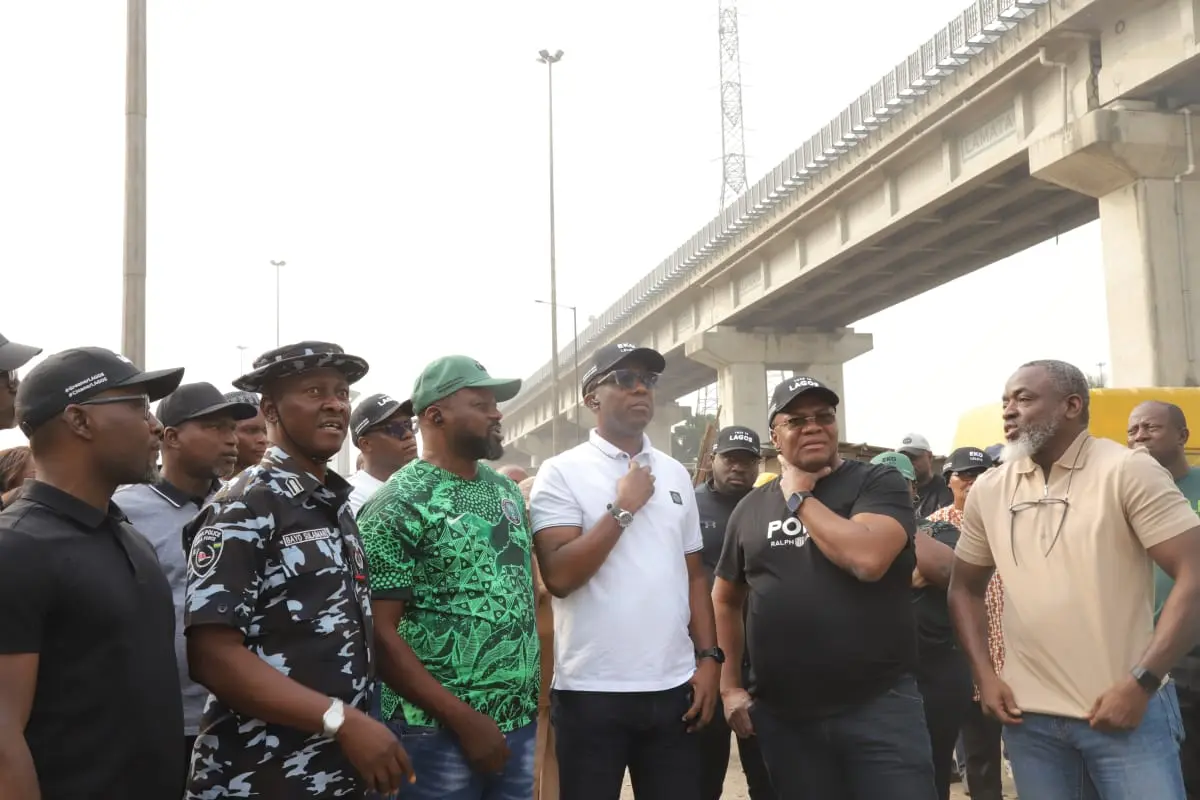
The Lagos State Commissioner for Environment and Water Resources, Tokunbo Wahab said the recent crackdown and demolition of illegal structures across Lagos State was an indication that the state is a victim of its own development.
Wahab stated this in an interview with Arise Television on Sunday.
He said the government of Lagos State is not battering its citizens but is rather just a victim of its own development, and as such, everybody coming into the state has got to come in and be responsible and be able to be accounted for.
“The truth is that no matter what the government does, there is a state of mistrust between them and the citizens globally. It is a global thing. My response to this is we are not battering them. You can’t say you are under the bridge and you want us to account for you. It is not habitable at all. It is not about battering people that are under privileged, we can’t do that. But it is about taking ownership. Lagos is just a victim of its own development.”
Speaking on the incident that led to the recent demolition of the illegal under bridge structure at Dolphin Estate Ikoyi, the commissioner said a whistleblower alerted authorities about suspicious activities under the bridge and following the tip-off, investigations uncovered a network facilitating illegal tenancy arrangements, with individuals, including women and young people, being exploited.
“The past few weeks and months, the state made a policy that we shall reclaim all our ungoverned spaces and we started out with Ijora under bridge, under national theatre, from there we went to Apongbon, Obalende, then a whistleblower called our attention last week Wednesday, he said he was jogging and heard voices under the bridge. He didn’t even stop, he slowed down and peeped in, took a video and sent it to my social media handle.
“Right there and then, I had to inform the governor that something was happening there and that we had to go, and he approved and the rest they say is history. What is not history is the fact that we have declared the ringleader wanted because somebody somewhere has been collecting rent and giving out spaces to individuals, women, young people and we have said to him that the long hand of the law shall surely catch up with him, no matter how long it takes us.”
He said efforts are underway to repurpose these spaces for beneficial use.
“We are also trying to put these spaces to functional usage. We have an agency called Glass pack. The role of that agency is to put these ungoverned spaces to proper usage to citizens.
“The one at Ijora, a design has been approved and it’s a CSR by a Lagosian who believes we can turn it to a football pitch and have some other games in there. Obalende has been taken up by one of the biggest telecoms companies in the country, MTN and the design is already in the works. Same thing we are going to do for Apongbon and the Dolphin area.
“So, what we are saying to the citizens is, don’t be vulnerable, no matter how desperate you are. If you have the means to pay two hundred and fifty thousand naira for a small space under the bridge, you don’t have to be in Ikoyi, you can go and live outside the Island or where you can pay for rent for a decent accommodation.
“We were even there yesterday and it was very emotional. We saw three young kids and I spoke to my colleague in the ministry of youth and social development and I said to him to take them to our homes and I will be personally responsible for them from now till they are able to go to the University and graduate and that for me is the path and way to go as a State.
“We are profiling each one of the tenants. I am not the one that will perform that duty. The agency under which they were arrested is profiling them. With the profiling they are going to remove those that were just there and then take the criminal elements or suspects to court on Monday.”
Wahab said several notices were served prior to the demolition as well as engagements with major stakeholders.
“I don’t demolish properties; I remove contraventions on the right of way of the drainage system or the canal and with respect to Mende…in 2021, my predecessor in office served them a notice and they had engagements that ran into months and years.
“In November 2023, we called a stakeholders meeting, we served notices before then and even marked buildings on the right of way and they came to my office and we had a meeting, played the video and they did admit that they were on the right of way but however pleaded that we reduce the right of way.
“On the issue of notices, they have been served enough notices. We served in 2021, renewed again in 2023, that is about six months ago. In my first life, I was a lawyer and notices are the first of every activity and we have served them and I am sure of that.
“If they have a genuine claim, they have a means to ventilate that claim and that is the court of law. The executives have done what they believe is overriding public interest.”
On government plans to curb reemergence of illegal structures in the future, he called on citizens to collaborate by reporting illegal activities, emphasising that the collaboration will aid the government in being accountable for the people.
“We have ramped up the capacities of our enforcement units, so they have to start pinning down officers in every area where we have ungoverned spaces and then we are relying on the citizens to take ownership and trust the government to do the right thing in the sense that when you whistle blow, the government will take steps of actions.
“With respect to those people who have no business to be where they are staying, what we are trying to push back in Lagos here is for us to be able to account for everyone that is in this space. For the sake of the generality of our citizens, if you come in and you are staying under the bridge, how do we plan for your education, for your health and for our own infrastructure to take care of you. If you are under the bridge, nobody can make plans for you.”
News and Report
Illegal buildings: Lagos is victim of its own development – Tokunbo Wahab
Published
1 day agoon
May 6, 2024The Lagos State Commissioner for Environment and Water Resources, Tokunbo Wahab said the recent crackdown and demolition of illegal structures across Lagos State was an indication that the state is a victim of its own development.
Wahab stated this in an interview with Arise Television on Sunday.
He said the government of Lagos State is not battering its citizens but is rather just a victim of its own development, and as such, everybody coming into the state has got to come in and be responsible and be able to be accounted for.
“The truth is that no matter what the government does, there is a state of mistrust between them and the citizens globally. It is a global thing. My response to this is we are not battering them. You can’t say you are under the bridge and you want us to account for you. It is not habitable at all. It is not about battering people that are under privileged, we can’t do that. But it is about taking ownership. Lagos is just a victim of its own development.”
Speaking on the incident that led to the recent demolition of the illegal under bridge structure at Dolphin Estate Ikoyi, the commissioner said a whistleblower alerted authorities about suspicious activities under the bridge and following the tip-off, investigations uncovered a network facilitating illegal tenancy arrangements, with individuals, including women and young people, being exploited.
“The past few weeks and months, the state made a policy that we shall reclaim all our ungoverned spaces and we started out with Ijora under bridge, under national theatre, from there we went to Apongbon, Obalende, then a whistleblower called our attention last week Wednesday, he said he was jogging and heard voices under the bridge. He didn’t even stop, he slowed down and peeped in, took a video and sent it to my social media handle.
“Right there and then, I had to inform the governor that something was happening there and that we had to go, and he approved and the rest they say is history. What is not history is the fact that we have declared the ringleader wanted because somebody somewhere has been collecting rent and giving out spaces to individuals, women, young people and we have said to him that the long hand of the law shall surely catch up with him, no matter how long it takes us.”
He said efforts are underway to repurpose these spaces for beneficial use.
“We are also trying to put these spaces to functional usage. We have an agency called Glass pack. The role of that agency is to put these ungoverned spaces to proper usage to citizens.
“The one at Ijora, a design has been approved and it’s a CSR by a Lagosian who believes we can turn it to a football pitch and have some other games in there. Obalende has been taken up by one of the biggest telecoms companies in the country, MTN and the design is already in the works. Same thing we are going to do for Apongbon and the Dolphin area.
“So, what we are saying to the citizens is, don’t be vulnerable, no matter how desperate you are. If you have the means to pay two hundred and fifty thousand naira for a small space under the bridge, you don’t have to be in Ikoyi, you can go and live outside the Island or where you can pay for rent for a decent accommodation.
“We were even there yesterday and it was very emotional. We saw three young kids and I spoke to my colleague in the ministry of youth and social development and I said to him to take them to our homes and I will be personally responsible for them from now till they are able to go to the University and graduate and that for me is the path and way to go as a State.
“We are profiling each one of the tenants. I am not the one that will perform that duty. The agency under which they were arrested is profiling them. With the profiling they are going to remove those that were just there and then take the criminal elements or suspects to court on Monday.”
Wahab said several notices were served prior to the demolition as well as engagements with major stakeholders.
“I don’t demolish properties; I remove contraventions on the right of way of the drainage system or the canal and with respect to Mende…in 2021, my predecessor in office served them a notice and they had engagements that ran into months and years.
“In November 2023, we called a stakeholders meeting, we served notices before then and even marked buildings on the right of way and they came to my office and we had a meeting, played the video and they did admit that they were on the right of way but however pleaded that we reduce the right of way.
“On the issue of notices, they have been served enough notices. We served in 2021, renewed again in 2023, that is about six months ago. In my first life, I was a lawyer and notices are the first of every activity and we have served them and I am sure of that.
“If they have a genuine claim, they have a means to ventilate that claim and that is the court of law. The executives have done what they believe is overriding public interest.”
On government plans to curb reemergence of illegal structures in the future, he called on citizens to collaborate by reporting illegal activities, emphasising that the collaboration will aid the government in being accountable for the people.
“We have ramped up the capacities of our enforcement units, so they have to start pinning down officers in every area where we have ungoverned spaces and then we are relying on the citizens to take ownership and trust the government to do the right thing in the sense that when you whistle blow, the government will take steps of actions.
“With respect to those people who have no business to be where they are staying, what we are trying to push back in Lagos here is for us to be able to account for everyone that is in this space. For the sake of the generality of our citizens, if you come in and you are staying under the bridge, how do we plan for your education, for your health and for our own infrastructure to take care of you. If you are under the bridge, nobody can make plans for you.”
News and Report
80% of Lekki buildings have no approval, says LASG….
Published
1 day agoon
May 6, 2024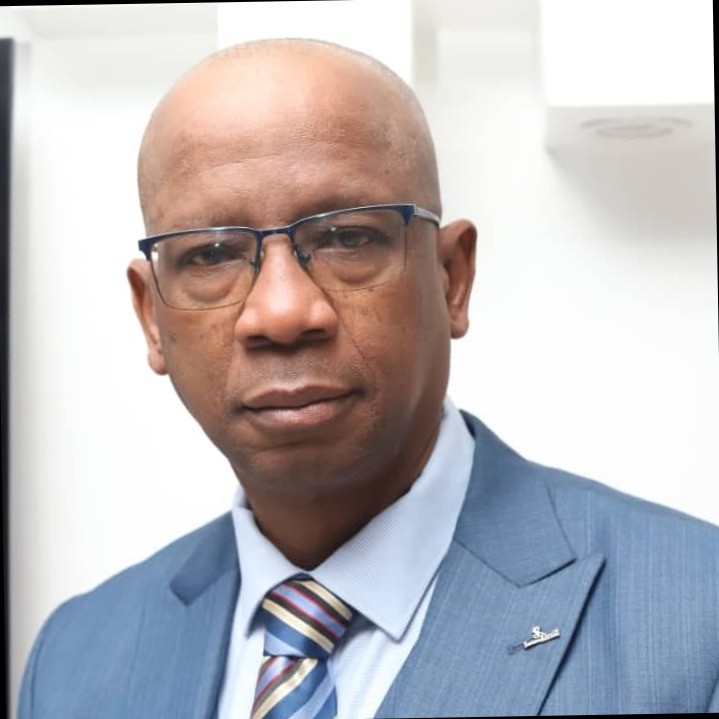
Lagos State Commissioner for Physical Planning and Urban Development, Dr Oluyinka Olumide, stated that 80 per cent of buildings in Ibeju Lekki have no approval.
He disclosed this in a recent interview with newsmen.
He said, “Just last week Thursday and Friday, myself and the team were in the Ibeju Lekki and Epe axis and you would agree with me that anybody passing through that corridor would see a lot of estates marked. We went there, and I can tell you that from what we saw, over 80 per cent of them do not have approval.
“The procedure to get approval is first to get the planning information, as to what those areas have been zoned for. In this case, what we have is agricultural land, and people now go to their families to buy agricultural land. Of course, those lands would be sold because those families do not know the use such land would be put to.
“The next thing to do is the fence permit. If you missed the earlier information on not knowing the area zoning, at the point of getting the fence permit, you would be able to detect what the area is zoned for. After that, the layout permits a large expense of land follows.”
Olumide noted that a layout permit cannot be obtained if it is not zoned for the purpose it was designed for or for the purpose it was being requested.
“So, you can see all these layers, but people still go ahead to start advertising. Some have even gone to the extent of displaying the sizes they want to sell. Imagine someone in the diaspora who wants to send money without any knowledge. Then, no approval is eventually gotten. Even if they pass the assignment and the survey to them, we would not grant the individual permit, because that area is not zoned for that purpose,” the commissioner explained.
In the same vein, the Chief Executive Officer of Octo5 Holdings, Jide Odusolu, said Lekki Peninsula’s masterplan got distorted post-2010 due to rapid development, with newer estates sidestepping old regulations.
He said, “The Lekki peninsula had a master plan which was originally launched when Bola Tinubu was the governor and updated under Babatunde Fashola. Almost all large estates along the Lekki corridor, especially those developed between 2000-2008, have approved layout plans. It was obligatory and rigidly enforced by the state government.
“However, starting in 2010, the plans became distorted with accelerated development, and many of the smaller schemes that sprung up deliberately sought to avoid the large infrastructure burdens carried by the legacy era developments.
“I am sure investigations with developers such as UPDC (Pinnock Beach), Trojan Estate, Aircom (Northern Foreshore), Cityscape (Buenavista), Howard Roarks (Lake View) and Octo5 (Ocean Bay) will reveal how they all spent huge sums providing infrastructure with zero support from the government while still paying punitive taxes.”
According to Odusolu, the government weaponised planning and titling for internally generated revenue, and that disincentivises compliance, leading to chaotic development.
Meanwhile, the Managing Director of Fame at Oyster & Co. Nigeria, Femi Oyedele, said most of the estates had layout plans that were not coordinated to form a planned city.
He noted that the communities that were not planned were the historic settlements that the government excised in the scheme.
“To do Lekki better, those estates which have been approved on the west and east arterial roads, which go down to Awoyaya on the east side and to Akodo on the west side of Lekki-Epe Expressway, must be demolished to make way for the planned roads.
“The kind of restoration done to Abuja by Nasir El’Rufai must be done in Lekki. Lekki Peninsular and Victoria Island have a population of over 3 million people. Glasgow has a population of less than 2 million people with twice the roads of Lekki Peninsula,” he enunciated.

Illegal buildings: Lagos is victim of its own development – Tokunbo Wahab
Illegal buildings: Lagos is victim of its own development – Tokunbo Wahab

80% of Lekki buildings have no approval, says LASG….

EXPOSED: HOW SACKED NNPC BOSS BILLY AGHA SPENT OVER N100 MILLION ON HIS GIRLFRIEND’S ARABIAN BIRTHDAY PARTY

Just In: Covid-19: Socialite Bolu Akin-Olugbade passed on at Paelon Covid Centre, Ikeja.

IMO PCC COMMISSIONER, WILLY AMADI IN VIRAL THREESOME SEX VIDEO SCANDAL

Trending
-

 Society6 years ago
Society6 years agoEXPOSED: HOW SACKED NNPC BOSS BILLY AGHA SPENT OVER N100 MILLION ON HIS GIRLFRIEND’S ARABIAN BIRTHDAY PARTY
-

 Society3 years ago
Society3 years agoJust In: Covid-19: Socialite Bolu Akin-Olugbade passed on at Paelon Covid Centre, Ikeja.
-

 Society3 years ago
Society3 years agoIMO PCC COMMISSIONER, WILLY AMADI IN VIRAL THREESOME SEX VIDEO SCANDAL
-

 News and Report5 years ago
News and Report5 years agoStanbic IBTC In Trouble As Supreme Court Orders Bank To Pay Customer ₦2.5Billion
-

 News and Report6 years ago
News and Report6 years agoDelta 2019: Gov. Okowa’s ambition cripples Asaba Airport upgrade…. • As ULO Construction Company pulls out • Okowa allegedly diverts N1.5Bn budgeted for the project
-
News and Report7 years ago
More Queen’s College pupils take ill…• Parents call for prosecution of ex-principal
-

 News and Report5 years ago
News and Report5 years agoGTBank Releases 2018 Full Year Audited Results …….. Reports Profit before Tax of ₦215.6 Billion
-
News and Report6 years ago
GTBank Releases H1 2018 Audited Results, Reports Profit Before Tax Of ₦109.6 Billion



